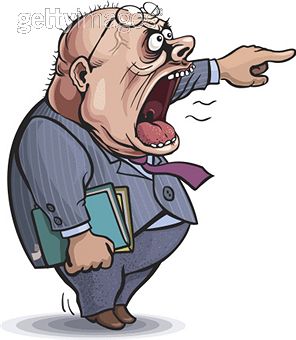"In the beginning was the Word," according to the Bible. Words create our reality. Words have power -- to uplift or to tear down, to inspire or to incite, to heal or to hurt. Words create our world -- for better or for worse.
Rush Limbaugh's personal name-calling ("slut" and "prostitute") of Sandra Fluke, a young female Georgetown law student, has ignited a firestorm of debate about the role of words in politics and in society. Those who defensively insist that Limbaugh's use of misogynistic slurs has nothing to do with the Republicans' attitudes toward women are fooling themselves. And those on the Left who hurl accusations and blame the GOP for Limbaugh's bad behavior are failing to recognize that Democrats, too, are guilty of sexist insults and vitriolic personal attacks. There is plenty of blame to go around.
We all understand the power of words. Words shape our perception of the world; words trigger emotions; words wound; words have consequences. Those who write books and blogs understand the power of words; those who work in advertising and sales know the power of words; those in the media are savvy about the power of words; and political leaders know all-too-well the power of words.
Words call us to action: to buy things, to vote a certain way, to hate those who are different from us, to eat certain foods and wear specific brands of clothes, and yes, to assault, rape and even kill.
America was established by words -- the Declaration of Independence. Our rights and responsibilities are secured by words -- the Constitution. Words commemorate significant events in history -- the Gettysburg Address. Words capture the hopes and dreams of a people -- MLK's "I Have a Dream" speech. We memorize those words; we recite those words; we refer to those words; we call on those words to define who we are and what we stand for as a nation.
Those who pooh-pooh the destructive power of words are forgetting (or ignoring) the horrific results of deadly orators such as Hitler and Mussolini. History is replete with examples of political leaders who used their words to incite hatred, start wars and lead their people to commit genocide.
 (Getty Images; used with permission)
(Getty Images; used with permission)
The Bible isn't the only authority and Jesus wasn't the only spiritual leader who preached about the power of our words. Five hundred years before Jesus was born, Buddha cautioned his followers:
"Be careful of your thoughts, for your thoughts become your words.
Be careful of your words, for your words become your actions.
Be careful of your actions, for your actions become your habits.
Be careful of your habits, for your habits become your character.
Be careful of your character, for your character becomes your destiny."
Buddha wasn't just talking about politicians and pundits -- he was talking about all of us. One of Buddha's Eight Noble Truths is the concept of Right Speech, the first principle of ethical conduct. Buddha pointed out that "words can break or save lives, make enemies or friends, start war or create peace. He explained the elements of right speech: (1) to abstain from false speech, especially not to tell deliberate lies and not to speak deceitfully, (2) to abstain from slanderous speech and not to use words maliciously against others, (3) to abstain from harsh words that offend or hurt others, and (4) to abstain from idle chatter that lacks purpose or depth."
Is Rush Limbaugh guilty of verbal violence? Are Bill O'Reilly and Sean Hannity guilty of contributing to a toxic political and social culture? Is Ed Schultz culpable for fanning the flames of hate? Does Rachel Maddow contribute to self-righteous intolerance with her commentary? Do Jon Stewart and Stephen Colbert commit verbal violence when they ridicule public figures?
Jesus and Buddha would both tell us that looking for someone to blame for today's toxic public discourse will not bring us closer to an healthy society where good people can disagree without resorting to nasty, ugly, personal attacks.
The real questions we need to ask are: How do MY words contribute to the world I live in? In what ways do I participate in a social and political culture of intolerance, hate, and/or violence?
For as long as we point fingers of blame at one another, we fail to see our own culpability. "And why behold you the mote that is in your brother's eye, but consider not the beam that is in your own?" the Bible chastises us.
Every time we yell at someone who cuts us off in traffic, we are being verbally violent. Each time we call someone an "idiot" or "moron," we are guilty of wrong speech. If in exasperation we blurt out, "I'm gonna kill you!" to our spouses, our words are attacks. Idle threats are not idle -- they are seeds we plant in our psychic and cultural soil, seeds that take root and all-too-often bear the bitter fruit of violent acts.
If we want more civil discourse, we must start with ourselves. If we want more respect for women, we must begin by giving it all women, even those we dislike. If we want less violence in our country, we must stop committing violence with our words. Change doesn't start in Washington -- it starts with each and every one of us, where we live and work. Gandhi taught us, "We must BE the change we wish to see in the world." And the Christian hymn echoes: "Let there be peace on earth and let it begin with me."
BJ Gallagher's new book (with Franz Metcalf) is 'Being Buddha at Work: 108 Ancient Truths on Change, Stress, Money, and Success' (Berrett-Koehler).
